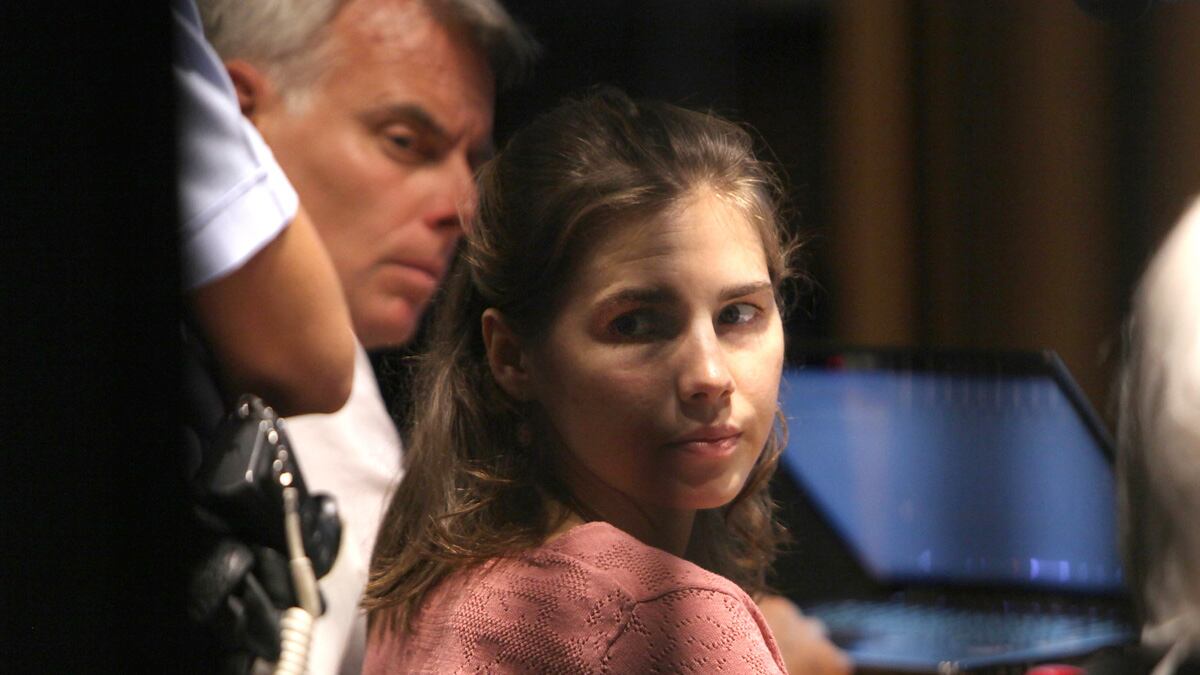Amanda Knox has fresh hope for freedom, but the game isn’t over yet.
As Knox’s appellate trial churns on in Perugia, Italy, increasingly tough questions about whether her conviction is clean take center stage. Knox and her former boyfriend Raffaele Sollecito are jointly appealing their 2009 murder convictions in the death of British exhange student Meredith Kercher.
Last Monday, two forensic experts from Rome’s La Sapienza University told the appellate court that key pieces of evidence used to convict Knox and Sollecito could have been contaminated: a knife found in Sollecito’s apartment with Knox’s DNA on the handle and what prosecutors say was Kercher’s DNA on the blade, and the clasp from Kercher’s bra that has Sollecito’s DNA on the tiny metal eye of the hook. The experts argued that sub-standard methods were used in the collection and examination of this evidence, which means inaccurate results could have been the result of contamination.
On Saturday, the prosecution team had their chance to poke holes in the experts’ findings. Under cross examination by prosecutor Manuela Comodi, Carla Vecchiotti admitted that she could not rule out whether or not Kercher’s DNA had originally been found on the knife. But by the time they examined it, she said “there were no traces of DNA on the blade.” Then she added that there was no evidence that the defendants washed the knife as the prosecution claimed in the original trial.

A letter from the director of Italy’s scientific police, Piero Angeloni, was read in court. In it he defended his team’s work, and said that each year they process 4,500 crime scenes and they have never been condemned so harshly for their work, writing, “Never has anyone questioned our methods this way.”
The presiding judge then showed that he is not taking the independent review at face value. Against the defense teams’ protests, he granted a prosecution request to hear more witnesses, including those who collected the evidence. Those witnesses will be heard in September in what is expected to be a firey debate. Patrizia Stefanoni, who led the investigation, has said she is ready to file slander charges against the experts for their accusations and blanket condemnation of her work. She told The Daily Beast that she will also point out that other forensic evidence, including Knox and Kercher’s mixed blood and DNA found in the house, is reliable and is also relevant to the murder.
Cross-examination of the independent experts will continue September 5. With new witnesses now on the docket, the final outcome of this trial may be pushed back from late September to October. Knox, meanwhile, remains cautiously optimistic about the chances for her release, and the Kerchers remain in limbo, waiting for the final word on what really happened to their daughter.






